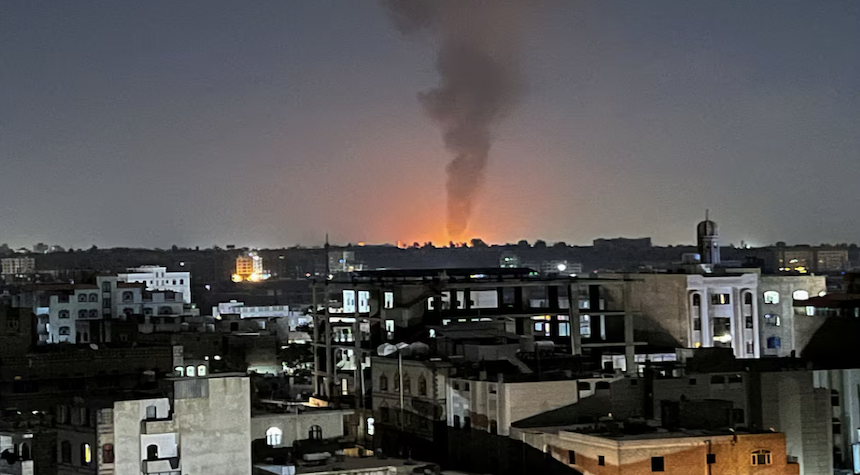The recent ceasefire deal brokered between the U.S. and Yemen’s Houthi rebels does not, in any way, ensure safety for Israel, thereby suggesting that the Houthi’s shipping attacks that have disrupted global trade and rattled world powers will maintain a constant threat.
The ceasefire announcement by President Trump that the U.S. would cease bombing the Iran-backed Houthis in Yemen was based on the premise that the group had pledged to halt attacks on U.S. ships. This, of course, was mediated by Oman and seemingly led to a peaceful period, with no reported Houthi attacks on shipping in the Red Sea area since January.
The Houthi chief negotiator, Mohammed Abdulsalam, was quick to clarify that the agreement “does not include Israel in any way, shape or form.” This means that while the U.S. and Houthis might have found momentary peace, Israel remains in the crosshairs. This is simply factually inaccurate if we are to consider this a true ‘ceasefire’.

In the past, the U.S. has stepped up strikes on the Houthis to prevent attacks on Red Sea shipping, a critical route for global trade, accounting for about 15% of the total. Rights activists have raised concerns over civilian casualties, and rightly so. However, the question we should be asking here is, are we effectively trading one problem for another?
The Houthis have been firing at Israel and disrupting Red Sea shipping since Israel began its military offensive against Hamas in Gaza post the Palestinian militant group’s deadly attack on Israel on Oct. 7, 2023. Tensions have been high since the Gaza war began, but have escalated since a Houthi missile landed near Israel’s Ben Gurion Airport. This led to Israeli airstrikes on Yemen’s Hodeidah port and Sanaa airport.
The reality is, under former President Joe Biden’s administration, the U.S. and Britain retaliated with air strikes against Houthi targets to keep the vital Red Sea route open. After Trump assumed the presidency, he decided to significantly intensify air strikes against the Houthis, especially after they announced a resumption of attacks on Israeli ships passing through the Red Sea and Arabian Sea, the Bab al-Mandab Strait, and the Gulf of Aden.
In conclusion, while the cessation of U.S. strikes against the Houthis may seem like a step towards peace, it leaves Israel vulnerable and global trade at risk. The problem, fundamentally, is that a ceasefire that does not encompass all potential targets is not a ceasefire at all, but a strategic pause.

